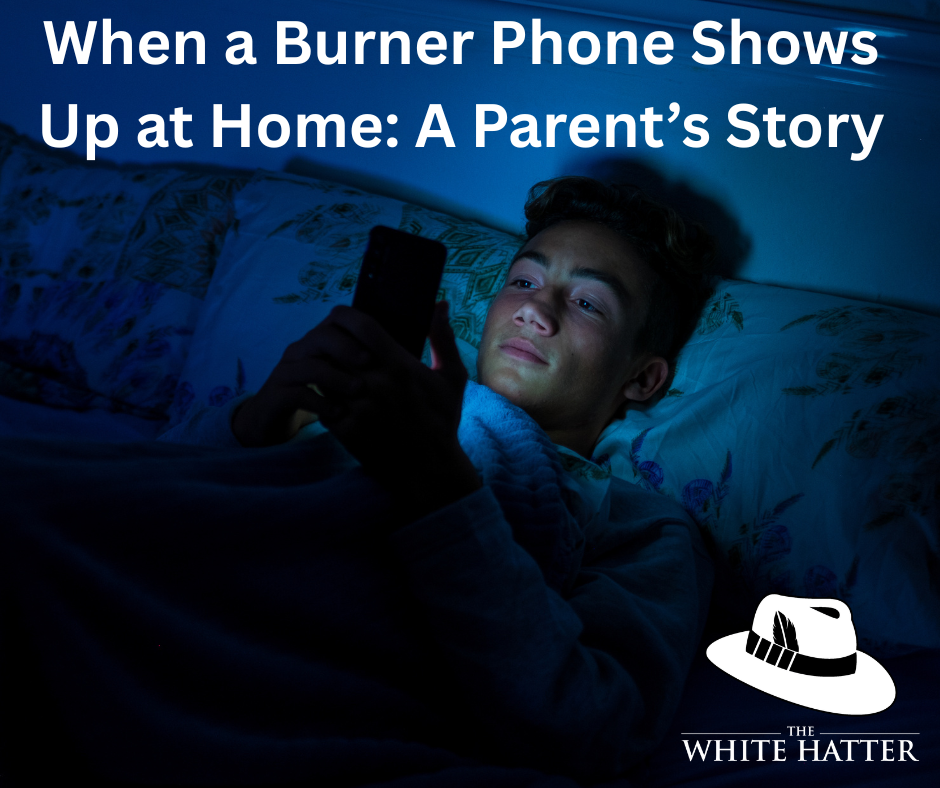Talking to Our Kids About Violence, Radicalization, and the Role of Social Media
- The White Hatter

- Sep 12, 2025
- 4 min read

When ugly happens in our world, social media can amplify it’s dark messaging. There are those who will perversely leverage this fact to metastasizes their ideology.
- The White Hatter
The recent tragedies in the United States, including yet another school shooting and the assassination of Charlie Kirk, have once again revealed how quickly violence becomes amplified and distorted online. Within hours of these absolutely horrible violent incidents, social media platforms filled with commentary, video, conspiracy theories, and polarizing narratives. What begins as grief and shock, often shifts into political weaponization. Voices on both the right and left, as well as external State actors who want to destabilize free and democratic societies, seize these moments to spread division and encourage hostility.
For young people scrolling through their feeds, this flood of vitriol can be overwhelming. It not only exposes them to graphic content but also places them in the path of individuals and groups actively trying to capture and radicalize youth. Recruiters thrive in times of chaos and confusion, using tragedy as a hook to draw kids into online communities that promise answers, belonging, or a sense of purpose, but at a dangerous cost.
During his time as a police officer and now as a member of The White Hatter, Darren has worked with families whose children were groomed and drawn into the grip of hate based ideologies and groups. Some of these young people came from very loving homes, while others did not. The reality is that no family is immune.
Talking to kids about radicalization and extremist content is not easy. Many parents would rather avoid the topic altogether because it feels uncomfortable or frightening. Yet silence leaves a vacuum. If we don’t speak to our children about these realities, someone else will, and that “someone else” are often individuals looking to twist vulnerable feelings into dangerous ideologies.
By opening the door to honest, age appropriate conversations, parents can provide context, reassurance, and critical thinking tools. These discussions don’t need to start with politics, they can start with questions like:
“What do you notice online when big news events happen?”
“How do you decide what’s true and what isn’t?”
“Have you ever seen posts that try to make people angry on purpose?”
These questions invite reflection without turning the conversation into a lecture.
It’s important for youth and teens to understand that feeling upset, scared, or confused when major world events unfold is completely normal. Big stories, whether it’s a tragic act of violence or political unrest, can stir up strong emotions. When parents take the time to acknowledge those feelings instead of brushing them aside, kids are more likely to process them in healthy ways. Validating their emotions helps them feel secure and reassured that what they are experiencing is a natural human response.
At the same time, youth and teens need to know that not everything they see online is accurate or shared in good faith. Social media thrives on speed and emotion, and misinformation can spread faster than verified facts. Explaining how false or misleading content circulates, and why some people deliberately fuel outrage for clicks, influence, or recruitment, gives youth and teens a clearer lens through which to view what they’re seeing on their screens.
Another message to share is that radicalization is real. Parents and caregivers can talk about this in age appropriate ways, explaining that there are groups and individuals online who are actively trying to pull young people in by playing on their fears, frustrations, or desire to belong. Making youth and teens aware of this risk doesn’t mean scaring them, but rather empowering them to recognize when someone might be trying to manipulate or recruit them into harmful ideologies.
Youth and teens should hear, often and without condition, that they can always talk to their parents or caregivers. If they come across content that upsets them, makes them feel pressured, or leaves them unsure of what to believe, they need to know that they can bring it to you without fear of judgment or punishment. Creating that open door of communication reassures them that they won’t have to navigate these challenges alone.
At The White Hatter, we believe that one of the best defences against radicalization is open and honest communication. As difficult as these topics may be, leaving them unspoken only strengthens the influence of those who wish to exploit our kids.
If we want our children to grow up resilient, informed, and resistant to extremist narratives, we need to give them the information and tools to think critically, regulate their emotions, and know they can turn to us for guidance. Silence is the space where radicalization metastasizes. Open and honest conversation is how we help to inoculate against it!
If you’re a parent, caregiver, or educator looking for reliable, evidence-based information on this topic, visit our website at www.thewhitehatter.com. Under our ‘Blog/Posts/Articles/Guides/Reviews’ section, (1) you’ll find a wide range of free articles available to read on this subject.
Digital Food For Thought
The White Hatter
Facts Not Fear, Facts Not Emotions, Enlighten Not Frighten, Know Tech Not No Tech
References:














